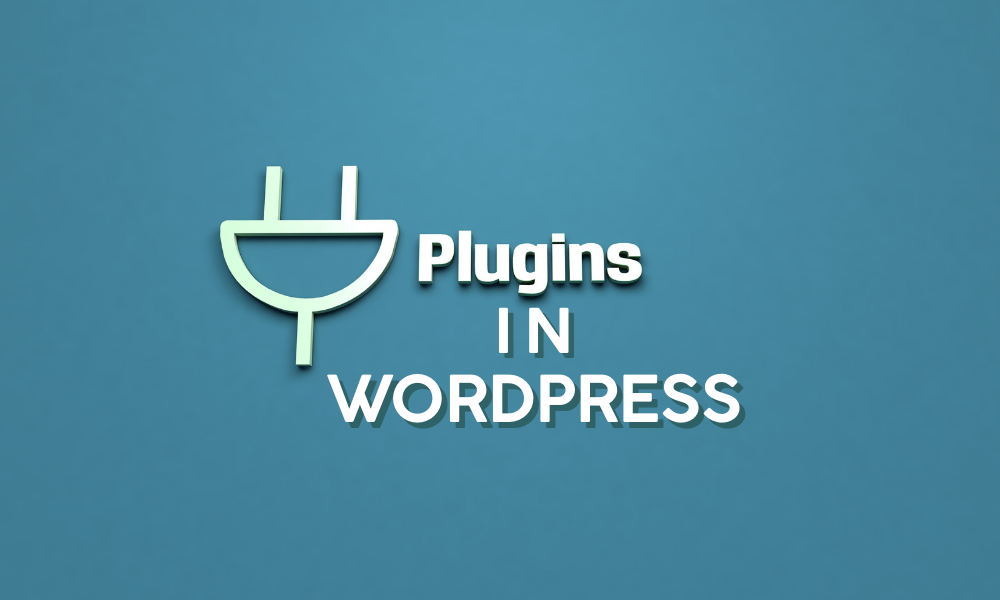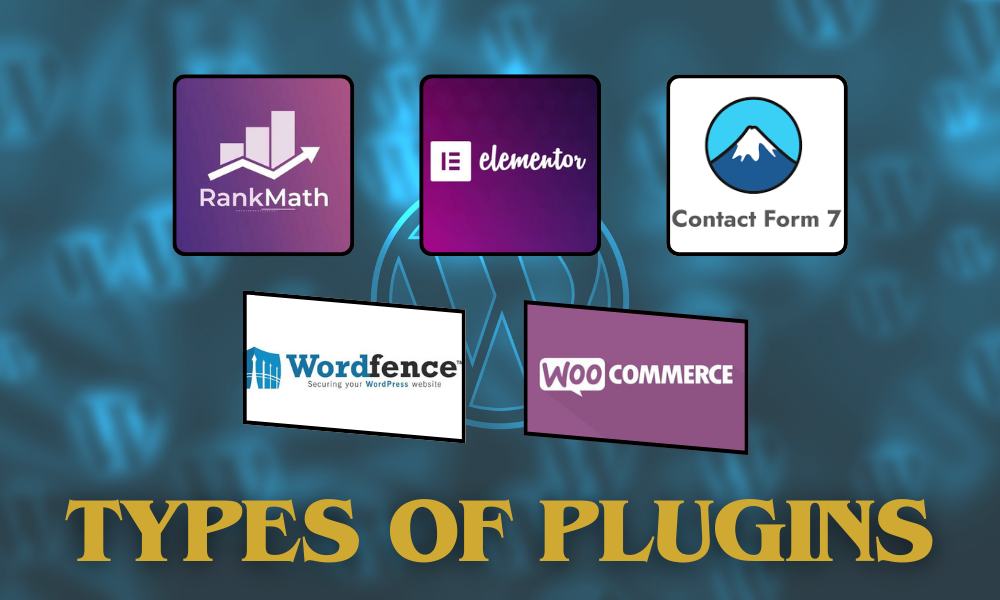
WordPress is one of the world’s most popular content management systems (CMS), empowering millions of websites globally. Launched in 2003 as a simple blogging tool, WordPress has evolved into a versatile platform that caters to bloggers, business owners, e-commerce entrepreneurs, and large corporations alike. There is an extensive library of plugins in WordPress. But what exactly are plugins, and why are they essential for your WordPress site?
Table of Contents
What Are Plugins In WordPress?
Plugins in WordPress are like applications for your website. They are pieces of software that can be added to your WordPress site to enhance its functionality. These plugins allow users to customize their websites in countless ways, from adding simple features like contact forms to more complex functionalities like e-commerce systems. Essentially, plugins extend the capabilities of your site without requiring extensive coding knowledge.
There are thousands of plugins available in the official WordPress Plugin Directory, covering a vast array of functionalities. Whether you’re looking to improve your site’s SEO, boost its performance, enhance security, or even integrate social media, there’s likely a plugin that can help you achieve your goals.
Importance of Plugins in Website Development
The flexibility offered by plugins is one of the primary reasons why both beginners and seasoned web developers favour WordPress. Here are some key reasons why plugins are important for website development:
- Customization: WordPress plugins allow users to tailor their websites to meet specific needs. Plugins allow users to easily add new features, change the layout, or enhance existing functionalities without having to modify the core code of WordPress.
- Time-Saving: Instead of developing new features from scratch, plugins allow you to implement solutions quickly. Many plugins are user-friendly and can be installed with just a few clicks, saving valuable development time.
- Functionality: Plugins in WordPress can add critical functionalities to your site, such as security enhancements, SEO tools, social media integration, and more. This added functionality helps improve user experience and website performance.
- Support and Updates: Most reputable plugins are actively maintained and updated by their developers. This means you can benefit from new features and security patches, ensuring that your website remains secure and functional over time.
- Community Support: The WordPress community is vast, and many plugins have a dedicated user base. This community can provide valuable support, tutorials, and advice on how to best utilize various plugins.
Types of Plugins in WordPress
Plugins in WordPress are essential tools that help extend the features and functionality of your website without needing to code from scratch. There are thousands of plugins available, and they can be categorized based on their purpose and usage. Below are some of the most common types of WordPress plugins:

1. SEO Plugins
Description: SEO plugins help improve your website’s search engine ranking by optimizing content, metadata, and keywords. They also offer suggestions for better on-page SEO and can generate sitemaps for easier indexing.
Popular Plugins:
- Yoast SEO: One of the most popular plugins for optimizing content, managing meta tags, and generating XML sitemaps.
- Rank Math: Offers advanced SEO features, including keyword tracking, schema markup, and SEO analysis.
2. Security Plugins
Description: Security plugins protect your website from malware, hacks, and unauthorized access. They offer features like firewalls, malware scanning, and login protection to keep your site safe.
Popular Plugins:
- Wordfence Security: Provides firewall protection, malware scanning, and login security.
- Sucuri Security: Offers a wide range of security features, including malware removal and website monitoring.
3. Caching Plugins
Description: Caching plugins help improve website speed by storing static versions of your pages. This reduces the load on the server and speeds up page loading times, enhancing the user experience.
Popular Plugins:
- WP Super Cache: Generates static HTML files from your dynamic WordPress site, speeding up load times.
- W3 Total Cache: A comprehensive caching plugin that improves site performance through various optimization methods.
4. E-commerce Plugins
Description: E-commerce plugins turn your WordPress site into a fully functional online store, enabling you to sell products or services. They include features like product listing, shopping carts, payment gateways, and inventory management.
Popular Plugins:
- WooCommerce: The most popular e-commerce plugin, offering extensive features for selling physical and digital products.
- Easy Digital Downloads: Specializes in selling digital products, such as e-books, software, and music.
5. Backup Plugins
Description: Backup plugins allow you to create regular backups of your WordPress site, ensuring that you can quickly restore your site in case of data loss or other issues. They offer options to save backups locally or to cloud storage.
Popular Plugins:
- UpdraftPlus: Allows you to schedule automatic backups and store them on various cloud platforms like Google Drive and Dropbox.
- BackupBuddy: Provides easy backup, restore, and migration features for WordPress sites.
6. Page Builder Plugins
Description: Page builder plugins enable you to design and customize your website without coding. They come with drag-and-drop features, pre-made templates, and various design elements to help you build pages easily.
Popular Plugins:
- Elementor: A user-friendly page builder with drag-and-drop functionality, making it easy to create custom layouts.
- WPBakery Page Builder: Offers a wide range of design elements and templates for building beautiful pages.
7. Social Media Plugins
Description: Social media plugins make it easy to integrate social sharing buttons, feeds, and login options into your website. They help drive traffic from social platforms and improve engagement.
Popular Plugins:
- Social Snap: Adds social sharing buttons, click-to-tweet boxes, and social media meta tags.
- Revive Old Posts: Automatically share your old content on social media platforms, driving more traffic to your site.
8. Form Builder Plugins
Description: Form builder plugins allow you to create contact forms, surveys, registration forms, and more. They are essential for gathering user information and generating leads.
Popular Plugins:
- WPForms: A beginner-friendly drag-and-drop form builder that allows you to create various types of forms.
- Contact Form 7: A simple yet flexible plugin for creating contact forms.
9. Analytics Plugins
Description: Analytics plugins help you track your website’s performance by providing insights into visitor behaviour, traffic sources, and popular content. They make it easier to analyze data without leaving your WordPress dashboard.
Popular Plugins:
- MonsterInsights: Integrates Google Analytics into WordPress, providing easy-to-read reports on website performance.
- ExactMetrics: Offers comprehensive insights into visitor behaviour, traffic, and conversions.
10. Membership & Subscription Plugins
Description: These WordPress plugins allow you to create membership sites where users can sign up, pay for subscriptions, and access exclusive content. They are ideal for creating online communities, courses, and subscription-based services.
Popular Plugins:
- MemberPress: Provides features to create membership sites, including subscription management and content restriction.
- Paid Memberships Pro: Allows you to set up different membership levels and manage subscriptions easily.
How to Choose the Right Plugins for Your WordPress Site?
With the vast selection of plugins in WordPress, it can be overwhelming to decide which ones will add genuine value to your site. While WordPress plugins can enhance functionality, improve performance, and make site management easier, choosing the wrong ones can lead to slower load times, security vulnerabilities, and compatibility issues. Here’s a guide to help you select the best plugins in WordPress site, ensuring they align with your needs and improve your website’s overall performance.
1. Identify Your Site’s Needs
The first step in choosing plugins is understanding your site’s specific needs and goals. Think about the features you want to add, such as SEO, security, or eCommerce functionality.
- E-commerce: If your site is focused on selling products, you’ll need plugins for shopping carts, payment gateways, and product pages (e.g., WooCommerce).
- SEO and Marketing: Plugins like Yoast SEO or Rank Math can be invaluable for increasing site visibility and attracting traffic.
- Security: Protecting your site from cyber threats should be a top priority, and plugins like Wordfence or iThemes Security offer robust security measures.
- Performance: Plugins like WP Rocket or WP-Optimize can speed up your site by caching pages, compressing files, and cleaning up your database.
2. Check Plugin Ratings and Reviews
The WordPress plugin directory displays user ratings and reviews for each plugin, which can provide insights into its performance and reliability.
- Ratings: Plugins with a high number of 4- or 5-star ratings tend to be more trustworthy. A plugin with thousands of positive reviews generally indicates reliability.
- Reviews: Reading reviews can give you a sense of the user experience, including any common issues or benefits other users have encountered.
- Recent Feedback: Pay attention to the date of the latest reviews. If recent reviews are negative or highlight bugs, you might want to consider alternative plugins.
3. Look for Lightweight Plugins
Heavy or poorly coded plugins can slow down your website, affecting the user experience and even your search engine rankings.
- Focus on Essential Features: Some WordPress plugins offer a wide range of features, but if you only need a few, look for lightweight plugins that specifically address your requirements.
- Avoid Redundancies: Using multiple plugins for the same purpose can overload your site. For instance, if you already have a caching plugin, you don’t need multiple ones for performance.
- Performance Testing: Tools like Query Monitor or GTmetrix can help you analyze your website’s performance before and after adding a plugin, giving you an idea of its impact on load times.
4. Evaluate Premium vs. Free Plugins
Free plugins can be highly effective, but sometimes, a premium (paid) plugin may offer advanced features and better support.
- Feature Comparison: Compare the free and premium versions of a plugin to see which features are essential for your site. Premium plugins often come with additional features and customization options.
- Long-Term Value: Consider the potential ROI. If a premium plugin offers features that will significantly benefit your site, it may be worth the investment.
- Support and Updates: Premium plugins generally offer better support and more frequent updates, adding value for users who require ongoing assistance.
Common Issues with WordPress Plugins and Troubleshooting Tips
1. Plugin Conflicts
Issue: Plugin conflicts occur when two or more plugins are incompatible, leading to unexpected behaviour, errors, or a complete site crash. This is a common issue, especially when new plugins are installed without checking compatibility.
Troubleshooting Tips:
- Deactivate All Plugins: Temporarily deactivate all plugins and check if the issue persists. If it resolves, reactivate them one by one to find the conflicting plugin.
- Check for Updates: Ensure that all plugins are up-to-date and compatible with your version of WordPress.
- Check Plugin Documentation: Some plugins might list known incompatibilities or issues in their documentation.
2. Website Slowing Down
Issue: Certain plugins can slow down your website, especially if they are poorly coded or resource-intensive. A slow website affects user experience and can hurt your search engine rankings.
Troubleshooting Tips:
- Monitor Site Speed: Use tools like GTmetrix or Google PageSpeed Insights to identify which plugins are affecting site speed.
- Replace Slow Plugins: Look for alternative plugins that offer the same functionality but are lighter and faster.
- Use a Caching Plugin: Caching plugins can improve site performance by reducing the load on your server.
3. Plugin Update Failures
Issue: Sometimes, plugin updates fail, leading to a broken plugin or even a broken site. This could be due to server configuration issues or internet connection problems.
Troubleshooting Tips:
- Manual Update: If the automatic update fails, try manually updating the plugin. Download the latest version from the WordPress Plugin Directory and upload it via FTP.
- Check File Permissions: Ensure that the WordPress files have the correct permissions to allow plugin updates. Typically, folders should be set to 755 and files to 644.
- Disable Maintenance Mode: When a plugin fails to update, your site might be stuck in maintenance mode. Delete the maintenance file from your root directory via FTP to restore your site.
FAQs Related to Plugins in WordPress
What is a WordPress plugin, and why is it useful?
A WordPress plugin is a tool that adds functionality to your website without any coding. They are essential for enhancing site features and user experience.
Are plugins free or paid?
WordPress offers both free and paid plugins. Free plugins can be installed directly from the WordPress repository, while premium plugins come with extra features.
Do plugins slow down a WordPress site?
Too many plugins can slow down your site, so it’s best to use only the ones you need and optimize them with caching plugins.
How do I install a WordPress plugin?
You can install plugins through the WordPress dashboard by searching for them in the “Plugins” section, or you can upload a plugin file if you’ve downloaded it elsewhere.
What are the best e-commerce plugins for WordPress?
WooCommerce
Easy Digital Downloads (EDD)
BigCommerce for WordPress
Ecwid E-commerce Shopping Cart
WP EasyCart
Conclusion
Choosing the right plugins in WordPress is crucial for enhancing functionality, performance, and security. Whether you need to improve SEO, speed up your site, manage an online store, or engage users through social media, there’s a plugin available to suit every need. However, it’s important to be selective and prioritize well-coded, regularly updated plugins that are compatible with your theme and other tools.
Regularly updating and maintaining your plugins ensures your website remains fast, secure, and optimized. By thoughtfully integrating the right plugins, you can provide a seamless and enjoyable experience for your visitors, ultimately driving more traffic, engagement, and conversions. So, take the time to explore the wide range of plugins in WordPress, and watch your WordPress site reach new heights!





